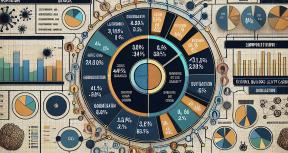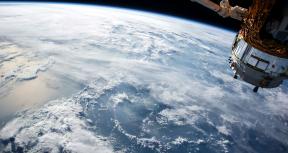Before joining the Independent Evaluation Group (IEG) in early August of this year, I was a great admirer of its work. IEG has been a global standard setter, in terms of rigor and quality but also as regards the role and influence that evaluation can have in multilateral development banks and public institutions globally.
One of my primary goals as the new Director General of IEG is to build on the legacy of my predecessor, who did fantastic work in strengthening the value add of evaluation as an instrument for learning, change and enhanced effectiveness. My arrival coincides with the 50th anniversary of the decision to establish an independent evaluation function at the World Bank. This decision has had an enormous impact on how the World Bank and other development institutions approach accountability and learning from the past for constant improvement, and I intend to honor this milestone with a steadfast focus on strengthening the relevance and usefulness of IEG for all its stakeholders.
Adapting evaluation to meet future needs
The World Bank is currently undergoing a transition. A process has been launched to expand and revise the vision of the World Bank and review its operational and financing model to ensure it is ready to meet the changing needs of its clients and address the challenges of the future. Evaluation has an important role to play in this process, not only in keeping the World Bank accountable, but also to ensure that the way forward builds on evidence on what works and what doesn’t. This will require providing evidence both for the longer-term strategic direction but also shorter-term, real-time evidence to help the institution course correct, particularly in times of crisis.
IEG has already shown its capacity to adapt, pivoting during Covid-19 to mine its body of evaluative work for evidence from past global crises to inform the pandemic response. Insights from our evaluations also informed early decisions on the goals of the Evolution Roadmap. Looking ahead, we will need a longer-term perspective on how we will provide the evidence needed to assess progress. This is especially true of the evidence needed to answer the call by World Bank President Ajay Banga to shift away from volumes of financing as an indicator of success, to focus instead on the outcomes for people and the planet of the interventions supported by that financing.
A long-term strategy guided by key principles
I will be working with my team at IEG to develop a long-term strategy for how we will contribute to the Evolution Roadmap. This will involve building on the work already underway, with a particular emphasis on three qualities that I believe are essential for effective evaluation.
The first is engagement. This means constantly listening to our various stakeholders to understand the questions they are grappling with, so that we can deliver the relevant evidence at the right time to help answer them. Regular engagement is also important as evaluation findings can reveal difficult truths, requiring equally difficult conversations. These are only possible if there is a relationship of trust, which must be built through engagement at all levels of the institution.
The second is quality and rigor. One of the things that appeals to me about evaluation is that it uses mixed methods and can borrow from a range of disciplines, from anthropology to economics and engineering. IEG is especially innovative in its use of methods and new technologies, as seen in recent experiments with generative artificial intelligence. Adopting new technologies and borrowing from different disciplines for relevant methods and data sources, both at the project and portfolio level, allows us to triangulate findings and paint an ever more detailed, accurate, and balanced assessment of reality. There is ample room for innovation, but it must be guided by the highest standards of quality and rigor. They are essential for credibility. Methods are often the first to be challenged in the face of uncomfortable findings, and evaluations produced with quality and rigor can withstand even the closest scrutiny.
Last but not least is independence. The history of the independent evaluation function at the World Bank has been an evolution towards ever greater institutional independence. This was vital for the credibility of the evaluation function and allows it to conduct its work free from any institutional influence. The independence of the evaluation function must also be accompanied by independent thinking, that produces the unbiased and objective evidence that is a key ingredient of credible evaluations. Institutional independence is a precondition for evaluators to do their jobs, and independent thinking is required to do the job effectively.
Building on the legacy of independent evaluation
Guided by these three principles, I look forward to building on the achievements of IEG to strengthen the usefulness of evaluation even further in enhancing the effectiveness of the World Bank during this critical moment of transition. IEG can be an important partner to the institution and its clients in identifying lessons from the past to improve future strategies and actions.
The 50th anniversary of the establishment of the independent evaluation function offers a unique opportunity to identify relevant lessons for the challenges ahead. I hope you will join me on September 14 as we celebrate the legacy of independent evaluation while discussing how it might now adapt to inform the Evolution Roadmap. As we establish our direction of travel, I look forward to regular feedback on the course we set, and where we can innovate further and do things better.








Add new comment